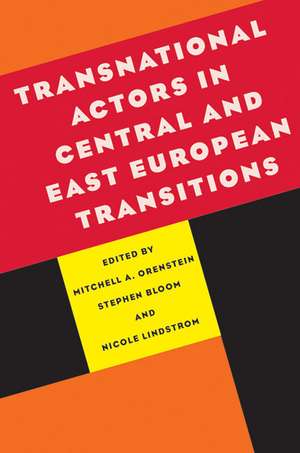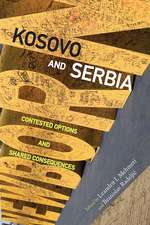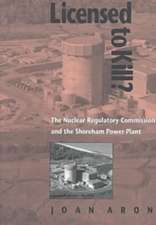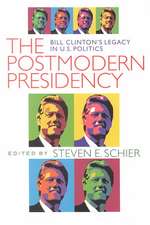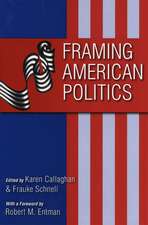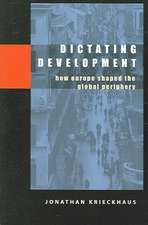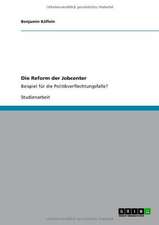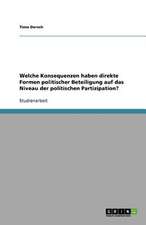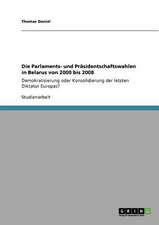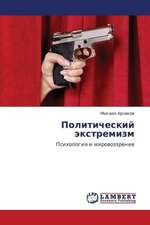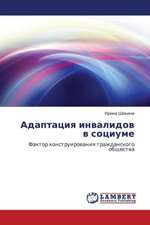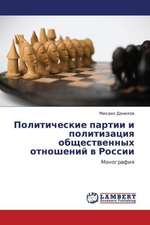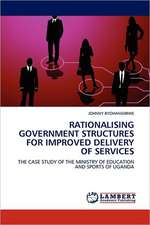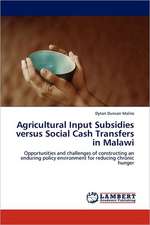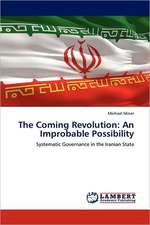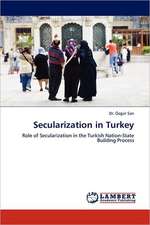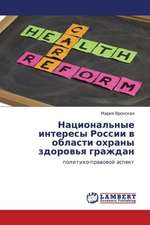Transnational Actors in Central and East European Transitions: Russian and East European Studies
Editat de Mitchell Alexander Orenstein, Stephen Bloom, Nicole Lindstromen Limba Engleză Paperback – 20 iun 2008
When Vladimir Putin claimed “outside forces” were at work during the Ukrainian Orange Revolution of 2004, it was not just a case of paranoia. In this uprising against election fraud, protesters had been trained in political organization and nonviolent resistance by a Western-financed democracy building coalition. Putin's accusations were more than just a call to xenophobic impulses-they were a testament to the pervasive influence of transnational actors in the shaping of postcommunist countries.
Despite this, the role of transnational actors has been downplayed or dismissed by many theorists. Realists maintain that only powerful states assert major influence, while others argue that transnational actors affect only rhetoric, not policy outcomes. The editors of this volume contend that transnational actors have exerted a powerful influence in postcommunist transitions. They demonstrate that transitions to democracy, capitalism, and nation-statehood, which scholars thought were likely to undermine one another, were facilitated by the integration of Central and East European states into an international system of complex interdependence. Transnational actors turn out to be the “dark matter” that held the various aspects of the transition together.
Transnational actors include international governmental and nongovernmental organizations, corporations, banks, foundations, religious groups, and activist networks, among others. The European Union is the most visible transnational actor in the region, but there are many others, including the OSCE, NATO, Council of Europe, the Catholic Church, and the Soros Foundation.
Transnational Actors in Central and East European Transitions assembles leading scholars to debate the role and impact of transnational actors and presents a promising new research program for the study of this rapidly transforming region.
Despite this, the role of transnational actors has been downplayed or dismissed by many theorists. Realists maintain that only powerful states assert major influence, while others argue that transnational actors affect only rhetoric, not policy outcomes. The editors of this volume contend that transnational actors have exerted a powerful influence in postcommunist transitions. They demonstrate that transitions to democracy, capitalism, and nation-statehood, which scholars thought were likely to undermine one another, were facilitated by the integration of Central and East European states into an international system of complex interdependence. Transnational actors turn out to be the “dark matter” that held the various aspects of the transition together.
Transnational actors include international governmental and nongovernmental organizations, corporations, banks, foundations, religious groups, and activist networks, among others. The European Union is the most visible transnational actor in the region, but there are many others, including the OSCE, NATO, Council of Europe, the Catholic Church, and the Soros Foundation.
Transnational Actors in Central and East European Transitions assembles leading scholars to debate the role and impact of transnational actors and presents a promising new research program for the study of this rapidly transforming region.
Din seria Russian and East European Studies
-
 Preț: 422.97 lei
Preț: 422.97 lei -
 Preț: 332.66 lei
Preț: 332.66 lei -
 Preț: 396.90 lei
Preț: 396.90 lei -
 Preț: 428.75 lei
Preț: 428.75 lei - 15%
 Preț: 678.74 lei
Preț: 678.74 lei -
 Preț: 433.53 lei
Preț: 433.53 lei -
 Preț: 238.43 lei
Preț: 238.43 lei -
 Preț: 391.67 lei
Preț: 391.67 lei -
 Preț: 436.25 lei
Preț: 436.25 lei -
 Preț: 295.91 lei
Preț: 295.91 lei -
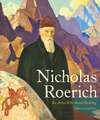 Preț: 326.41 lei
Preț: 326.41 lei -
 Preț: 127.24 lei
Preț: 127.24 lei -
 Preț: 123.55 lei
Preț: 123.55 lei -
 Preț: 315.41 lei
Preț: 315.41 lei -
 Preț: 349.81 lei
Preț: 349.81 lei -
 Preț: 485.99 lei
Preț: 485.99 lei - 15%
 Preț: 493.66 lei
Preț: 493.66 lei -
 Preț: 474.45 lei
Preț: 474.45 lei -
 Preț: 317.63 lei
Preț: 317.63 lei -
 Preț: 502.16 lei
Preț: 502.16 lei -
 Preț: 431.62 lei
Preț: 431.62 lei -
 Preț: 113.42 lei
Preț: 113.42 lei -
 Preț: 422.00 lei
Preț: 422.00 lei -
 Preț: 395.54 lei
Preț: 395.54 lei -
 Preț: 179.30 lei
Preț: 179.30 lei -
 Preț: 397.45 lei
Preț: 397.45 lei -
 Preț: 470.60 lei
Preț: 470.60 lei -
 Preț: 171.58 lei
Preț: 171.58 lei -
 Preț: 461.94 lei
Preț: 461.94 lei -
 Preț: 363.26 lei
Preț: 363.26 lei -
 Preț: 272.52 lei
Preț: 272.52 lei -
 Preț: 352.86 lei
Preț: 352.86 lei -
 Preț: 184.58 lei
Preț: 184.58 lei -
 Preț: 389.76 lei
Preț: 389.76 lei -
 Preț: 468.65 lei
Preț: 468.65 lei -
 Preț: 432.57 lei
Preț: 432.57 lei -
 Preț: 182.40 lei
Preț: 182.40 lei -
 Preț: 388.79 lei
Preț: 388.79 lei -
 Preț: 141.48 lei
Preț: 141.48 lei -
 Preț: 426.63 lei
Preț: 426.63 lei -
 Preț: 465.76 lei
Preț: 465.76 lei -
 Preț: 126.00 lei
Preț: 126.00 lei -
 Preț: 283.50 lei
Preț: 283.50 lei -
 Preț: 403.43 lei
Preț: 403.43 lei - 23%
 Preț: 568.69 lei
Preț: 568.69 lei - 23%
 Preț: 565.89 lei
Preț: 565.89 lei - 23%
 Preț: 556.25 lei
Preț: 556.25 lei -
 Preț: 385.91 lei
Preț: 385.91 lei -
 Preț: 422.97 lei
Preț: 422.97 lei -
 Preț: 385.53 lei
Preț: 385.53 lei
Preț: 388.58 lei
Nou
Puncte Express: 583
Preț estimativ în valută:
74.38€ • 80.82$ • 62.52£
74.38€ • 80.82$ • 62.52£
Carte tipărită la comandă
Livrare economică 22 aprilie-06 mai
Preluare comenzi: 021 569.72.76
Specificații
ISBN-13: 9780822959946
ISBN-10: 0822959941
Pagini: 272
Dimensiuni: 152 x 229 x 18 mm
Greutate: 0.43 kg
Editura: University of Pittsburgh Press
Colecția University of Pittsburgh Press
Seria Russian and East European Studies
ISBN-10: 0822959941
Pagini: 272
Dimensiuni: 152 x 229 x 18 mm
Greutate: 0.43 kg
Editura: University of Pittsburgh Press
Colecția University of Pittsburgh Press
Seria Russian and East European Studies
Recenzii
“This volume is the first encompassing and theoretically oriented statement on the diverse ways transnational actors and factors could be included in the analysis of change in Central and Eastern Europe. It represents a major common statement by the representatives of the new approach, fills a gap, and will serve as a baseline for further debates in the field.”
—Laszlo Bruszt, European University Institute
—Laszlo Bruszt, European University Institute
“Offers a wide-ranging assessment of both the mechanisms of transnational influence and the extent of this influence in various issue areas. It will be useful to those new to the area of transnational influence as well as offering detailed essays for those interested in certain specific areas. It is to be commended for its breadth of coverage and willingness to encompass competing views.”
—Slavonic and East European Review
—Slavonic and East European Review
Notă biografică
Mitchell A. Orenstein is S. Richard Hirsch Associate Professor of European Studies at Johns Hopkins School of Advanced International Studies. He is the author of Out of the Red: Building Capitalism and Democracy in Post-Communist Europe and Privatizing Pensions: The Transnational Campaign for Social Security Reform.
Stephen Bloom is assistant professor of political science at Southern Illinois University. He has conducted extensive fieldwork in Latvia and Ukraine and is currently completing a book entitled Economic Reform and Ethnic Cooperation.
Nicole Lindstrom is a Lecturer in the Department of Politics at the University of York (UK). She previously taught at the Central European University in Budapest, and has held visiting positions at The New School and the University of Warwick. Her forthcoming book analyzes how elites in Estonia, Croatia, and Slovenia have navigated problems of state-building during the process of European Integration.
Stephen Bloom is assistant professor of political science at Southern Illinois University. He has conducted extensive fieldwork in Latvia and Ukraine and is currently completing a book entitled Economic Reform and Ethnic Cooperation.
Nicole Lindstrom is a Lecturer in the Department of Politics at the University of York (UK). She previously taught at the Central European University in Budapest, and has held visiting positions at The New School and the University of Warwick. Her forthcoming book analyzes how elites in Estonia, Croatia, and Slovenia have navigated problems of state-building during the process of European Integration.
